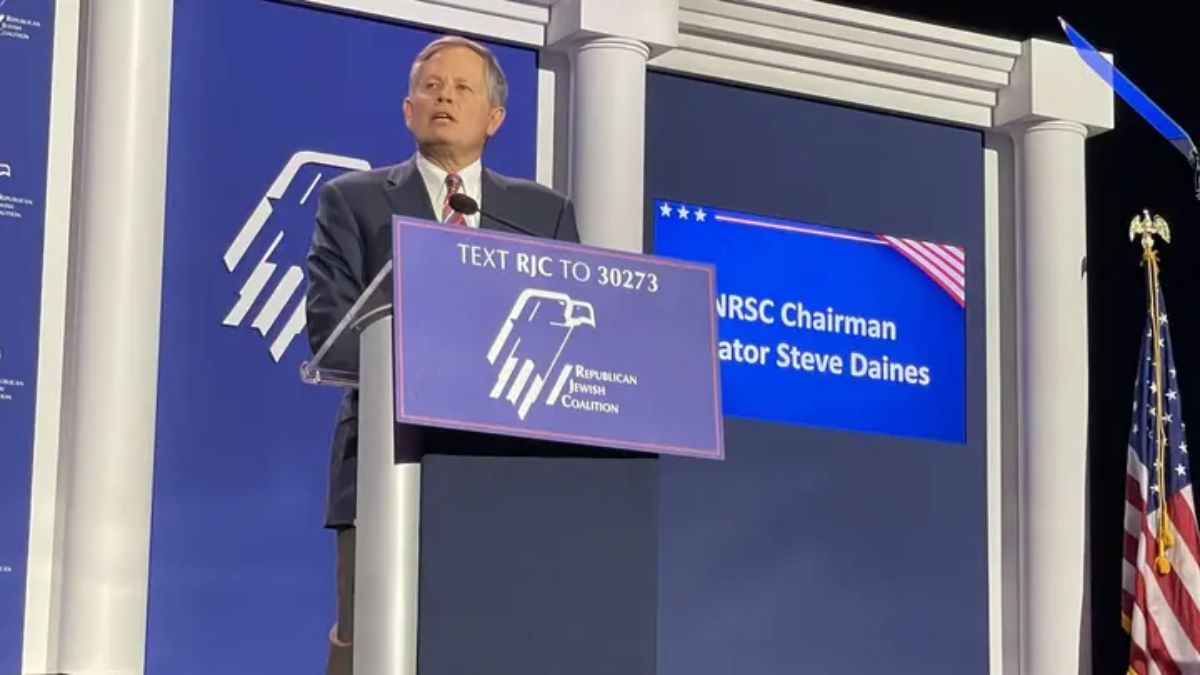Sen. Steve Daines, the chair of the National Republican Senatorial Committee (NRSC), has asserted that the Republican Party will reclaim control of the Senate in the upcoming November elections. Speaking at the Republican Jewish Coalition’s annual leadership meeting in Las Vegas, Daines set a clear target: “We will win the Senate majority,” with a specific aim of securing at least 51 seats.
Daines’ optimism is fueled by a favorable election map and the Democrats’ defense of 23 out of 34 contested Senate seats. Key battlegrounds include West Virginia, where the seat currently held by Democrat-turned-Independent Sen. Joe Manchin is expected to flip to the GOP. Additionally, Republicans are focusing on Montana and Ohio, aiming to unseat Democratic Senators Jon Tester and Sherrod Brown, respectively. Five more Democratic-held seats in crucial presidential battleground states are also in play.
Despite this strategic positioning, Daines has expressed concern over a significant fundraising disparity between GOP and Democratic campaigns. With Democrats reportedly outraising Republicans and reserving substantial funds for ad campaigns, Daines emphasizes the need for increased financial support. “We need your help to close the fundraising gap,” Daines urged, stressing the urgency of remedying the cash disparity to ensure successful campaigns.
The Democrats’ financial edge is evident, with substantial ad reservations and nearly $348 million planned for key races, compared to Republicans’ $255 million. The recent surge in Democratic fundraising, notably with Kamala Harris directing $25 million towards down-ballot races, has further intensified the competition. Harris, who has replaced President Biden as the top of the Democratic ticket, is seen by Daines as a double-edged sword—her ability to raise funds contrasts with the GOP’s strategic focus on policy issues rather than age concerns.
Looking ahead, Daines believes that the contrast between Trump’s and Harris’ administrations will play a critical role in the election. “This will be a policy contrast election,” he asserts, suggesting that the clear differences in administration results will benefit the GOP in key Senate races.
As the election approaches, the GOP faces a challenging yet promising landscape. Daines’ confidence, combined with strategic campaign focuses and a call for increased fundraising, sets the stage for a highly competitive Senate race. Whether the GOP can overcome the financial hurdles and capitalize on their strategic advantages will be crucial in determining the Senate majority come November.


